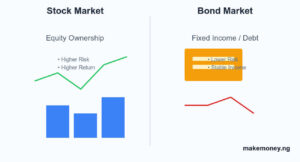Foreign direct investment in Ghana: advantages and challenges

Ghana is an emerging market situated in West Africa, the country is currently the second-largest economy in West Africa and one of the largest economies in the world. The Ghanaian economy is regarded as a highly diverse economy with an almost uniform spread of revenue percentages through varying sectors of the country.
The top of the contributing list to the development of the Ghanaian economy includes manufacturing, digital economy, exportation and agriculture. Foreign direct investment in Ghana is a major source of income that helps drive these varying sectors in the Ghanaian economy. This article offers all there is to know about the foreign direct investment regime in Ghana while stating the opportunities and challenges to expect and shedding light on the country’s potential as well as the challenges it faces.
Meaning of Foreign direct investment
Foreign direct investment occurs when a foreign company takes a stake or invests in a project or undertakes an investment in a significant part of a company operating in another country. The term is mostly used to describe investments coming from foreigners into the country to take a stake in a company operating in that country. Foreigners can undertake foreign direct investment by floating a business in a foreign country or acquiring an existing one.
Foreigners can also achieve this by setting up an already existing business operating in the foreigner’s country in the new country of choice. For instance, if Walmart is an American company and seeks to create a branch of its operations in Ghana as Walmart Ghana, Walmart Ghana automatically becomes a Ghanaian entity but would be held by Walmart America which is a foreign entity, such is classified as a foreign direct investment by Walmart America.
Foreign direct investment in Ghana
Foreign direct investment is significant to the economies of nations, virtually every nation of the world receives or offers one form of foreign direct investment or the other. The foreign direct investment culture has today become a significant part of trade across the globe with a series of regulations and protections offered to foreign investors while undertaking foreign direct investment in countries of choice.
In emerging markets like Ghana, foreign direct investments act as an essential part of the country’s economy, improving varying sectors, providing jobs, boosting technology development and increasing infrastructural development.
The Ghanaian market is one of the most favoured markets for foreign investors with billions of Dollars trooping into the market; the country is currently regarded as a major player in the investment drive on the African continent in recent times, this has seen thousands of investors seeking opportunities to invest in varying sectors of the Ghanaian economy.
Advantages of foreign direct investment in Ghana
1. A stable political environment
The Ghanaian economy possesses a stable democratic system, which is influenced by peaceful elections, a dedication to democratic governance and a stable democracy. The presence of a stable democracy greatly reduces the risks of political instability and greatly boosts the confidence of individuals in the country’s economic progress, hence an increased investment in the country’s economy by foreign investors.
This confidence placed by foreign investors in the Ghanaian political system has greatly impacted the development of the Ghanaian economy and attracted increased foreign direct investment.
2. Abundance of natural resources
Another opportunity in the Ghanaian foreign direct investment regime is the presence of the abundance of natural resources in the Ghanaian market. Ghana is a global player in the cocoa, gold, and petroleum industry, offering significant benefits to the international market, which in turn has offered the country increased finances.
These varying resources offer increased prospects for international investors in the Ghanaian market, notably in agriculture, mining and the petroleum industry.
3. Its location
The location of Ghana offers a strategic advancement to its economic progress which has allowed varying investors to provide increased investment into its economy. Ghana is located strategically in the Gulf of Guinea in West Africa, with close connections to major African markets like Nigeria which offer increased opportunities for increased regional trade and investment, offering it an appealing location for foreign direct investment.
Also, Ghana is a member of the Economic Community of West African States (ECOWAS) which has played significant roles in advancing development and trade within the West African sub-region, this therefore means access to a wider market after investing in Ghana.
Challenges of foreign direct investment in Ghana
1. Shortage of infrastructure
A major problem in Ghana is the lack of infrastructure for investors. Ghana has limited access to power, a poor transport sector, insufficient water supply and a lack of other basic amenities.
Investors would have to commit to providing additional income to provide these amenities to keep the business running in the country. This action would eventually lead to slow progress and an increase in the spending made.
2. Bureaucracy
Corruption and bureaucracy in Ghana is yet another challenge faced by foreign investors. Investors would have to go through the most irrelevant political offices or have to make unnecessary commitments to have their licenses for operation given by government bodies. This action has eventually led to a poor rating of Ghana in the Ease of doing business index.
To solve this issue, the Ghanaian government must be proactive with steps to simplifying the administrative process which includes fighting corruption and offering increased transparency that would eventually improve the ease of doing business in the country.
3. Lack of trained workforce
Ghana has a very young labour population, which has shown to be very active over the years. Nonetheless, while the Ghanaian workforce is young and active, there still exists a great need to build employment capacity for increased development.
To do this, the Ghanaian government must engage in vocational and educational training of its labour fore which would in turn attract greater value from foreign investors into the Ghanaian economy.
Conclusion
Foreign direct investment can boost Ghana’s economic growth. The country’s stable political climate, abundant natural resources, strategic position, expanding consumer market, and attractive business incentives make it a popular destination for international investors. Infrastructure problems, bureaucracy, corruption, talent shortages, and limited access to finance must all be addressed for Ghana’s investment potential to be fully realized.
The government and the private sector should work together to execute reforms and create an environment that encourages investment, job creation, and long-term economic growth. Ghana might attract more foreign direct investment with focused efforts and the correct policies, adding to its long-term economic and social growth.
How much foreign direct investment comes into Ghana? In the year 2021, Ghana had a total foreign direct investment of over $2 billion, which was an over 30% increase in the figure recorded in 2020.





